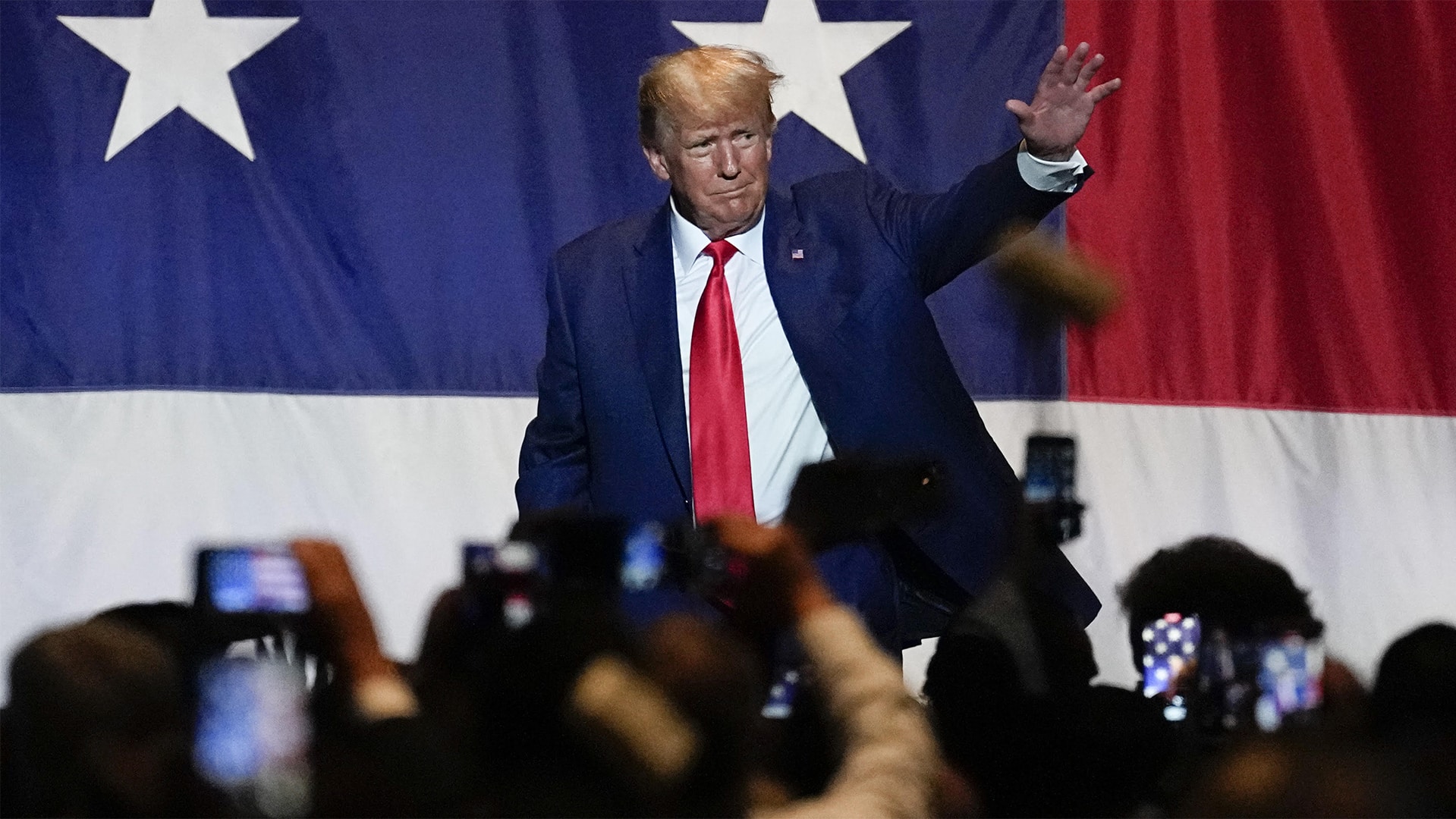The campaign to use the U.S. Constitution’s “insurrection” clause to bar former president Donald Trump from running for the White House again enters a new phase this week as hearings begin in two states on lawsuits that might end up reaching the U.S. Supreme Court.
A weeklong hearing on one lawsuit to bar Trump from the ballot in Colorado begins Monday, while on Thursday oral arguments are scheduled before the Minnesota Supreme Court in an effort to kick the Republican former president off the ballot in that state.
Whether the judges keep Trump on the ballot or boot him, their rulings are likely to be swiftly appealed, eventually to the U.S. Supreme Court. The nation’s highest court has never ruled on the Civil War-era provision in the 14th Amendment that prohibits those who swore an oath to uphold the Constitution and then “engaged in insurrection” against it from holding higher office.
Even if the cases are long shots, Notre Dame law professor Derek T. Muller said they have a plausible legal path to success and raise important issues.
“Those legal questions are very heavy ones,” Muller said.
Earlier this month, the Supreme Court declined to hear an appeal by John Anthony Castro, a Texas tax consultant who has mounted a long-shot bid for the Republican presidential nomination. Castro argued Trump was ineligible under the 14th Amendment, but lower courts said he lacked legal standing.
Trump was impeached for incitement of insurrection in early 2021 by the House of Representatives, in what was a political determination. Trump was narrowly acquitted at a Senate trial that could have seen him barred from future office, with 57 voting to convict, three shy of the threshold.
‘Unprecedented assault’ on Constitution: plaintiffs
The plaintiffs in the Colorado and Minnesota cases, including the Citizens for Responsibility and Ethics in Washington (CREW), argue the issue is simple: Trump’s efforts to overturn his 2020 election loss — leading to the Jan. 6, 2021, attack on the U.S. Capitol — mean he’s disqualified from the presidency just as clearly as if he were not a natural-born citizen, another constitutional prerequisite for the office.
“Four years after taking an oath to ‘preserve, protect and defend’ the Constitution as President of the United States … Trump tried to overthrow the results of the 2020 election, leading to a violent insurrection at the United States Capitol to stop the lawful transfer of power to his successor,” alleges the Colorado lawsuit, filed on behalf of Republican and unaffiliated voters by the Citizens for Responsibility and Ethics in Washington.
This morning, the trial is kicking off in Colorado in our 14th Amendment lawsuit seeking to bar Donald Trump from the ballot.
We look forward to making the case for Trump’s disqualification — on behalf of six courageous plaintiffs — in court today and over this week.
“By instigating this unprecedented assault on the American constitutional order, Trump violated his oath and disqualified himself under the Fourteenth Amendment from holding public office, including the Office of the President.”
Trump has castigated the lawsuits as “election interference.” His lawyers contend that none of the issues are simple in a provision of the Constitution that hasn’t been used in 150 years.
Featured VideoFormer U.S. president Donald Trump is facing criminal charges for the fourth time, after a Georgia grand jury issued a sweeping indictment accusing him of trying to overturn his 2020 election loss to Joe Biden and of running a ‘criminal enterprise.’ Andrew Chang explains all of the charges, and why the latest are so significant.
The clause has only been used a handful of times since immediately after the Civil War. Trump’s lawyers contend it was never meant to apply to the Office of the President, which is not mentioned in the text, unlike “Senator or Representative in Congress” and “elector of President and Vice-President.”
The provision allows Congress to grant amnesty — as was done in 1872 to allow former Confederates back into government — which has led some to argue it has no power without an enabling act of Congress.
Witnesses under seal
Finally, Trump’s lawyers contend the former president never “engaged in insurrection” and was simply exercising his free speech rights to warn about election results he did not believe were legitimate.
“Trump’s comments did not come close to ‘incitement,’ let alone ‘engagement’ in an insurrection,” his attorneys wrote in a filing in the Colorado case, adding examples of cases where the congressional authors of Section Three declined to use it against people who only rhetorically backed the Confederacy.
The arguments in Colorado could feature testimony from witnesses to the Jan. 6 attack or other important events during Trump’s efforts to overturn the election. The identities of witnesses have been shielded until they take the stand, part of the court’s effort to limit the heated rhetoric and threats that have become an issue in Trump’s criminal trials.
There is scant legal precedent on the issue. Legal scholars could only find one other time the provision was cited, during the First World War.
Then last year, it was used by CREW to bar the head of “Cowboys for Trump” from a county commission seat in rural New Mexico. A second liberal group, Free Speech for People, filed lawsuits seeking to prevent Republican House members Marjorie Taylor-Greene and Madison Cawthorn from running for re-election.
The judge overseeing Greene’s case ruled in her favour, while Cawthorn’s case became moot after he was defeated in his primary.














;Resize=(1180))







Discussion about this post